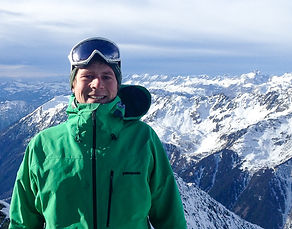
Hi.
I am Cascade Tuholske.
I am a Geographer.
(Update Coming soon)
Death Valley, CA © 2016 Cascade Tuholske
About

I am currently an Earth Institute Postdoctoral Research Scientist at Columbia University. Hosted by The Center for International Earth Science Information Network (CIESIN), my current research focus examines how climate change is affecting urban population exposure to extreme heat. Additionally, in collaboration with the Popgrid Data Collaborative, I am leading a project that explores how gridded population data can be used to track the United Nations Sustainable Development Goals. I also continue to work on urban food security/systems research in sub-Saharan Africa.
I received my PhD in Geography from the University of California, Santa Barbara, where I worked with the WAVES Lab, directed by Professor Kelly Caylor, UCSB's Earth Research Institute, Climate Hazards Center, and the National Center for Ecological Analysis and Synthesis (NCEAS). My disseration focused on the converging challenges of climate change, urbanization, and food security in Africa. As a scientist, I not only have an obligation to communicate the complexity of these problems, but to also maintain objectivity in light of the often divergent public, political, and scientific discourse. To this end, I am keen to leverage cutting-edge data science methods to engender evidenced-based policy and private sector solutions that reduce risk to climate change among the most vulnerable populations worldwide.
I employ a combination of remote-sensed imagery and GIS analysis, machine learning applications, household survey design and implementation, and statistical modeling to accomplish my research objectives. Much of my research relies on developing geospatial code in Python, though I am literate in R and desktop applications such as ENVI, QGIS and ArcGIS Pro. Funded as a U.S. Borlaug Fellow in Global Food Security, I have conducted household surveys in Accra, Ghana, and Lusaka, Zambia, to examine the environmental, socioeconomic, and spatial determinants of household food security within large African cities.
Prior to graduate school, my path weaved from studying International Affairs at The George Washington University, to hunting guinea worm in Northern Ghana, to working on Capitol Hill, and to teaching English in Sliven, Bulgaria, under a Fulbright Scholarship. This global tableau of experience cultivated my understanding of the complex and sometimes conflicting relationship between transformative science, idealistic public policy, and the practical political and local limitations of employing scientific research to enact positive change. By investigating climate change, urbanization, and food security, I seek to advance applied Earth systems science to address pressing global human-environmental challenges.

El Salvador © 2016 Cascade Tuholske

Chamonix, France © 2016 Cascade Tuholske
Contact Me

I am always looking for collaborations, suggestions, and general banter. Please feel free to email me at cascade (at) ciesin.columbia.edu or connect with me on social media.




